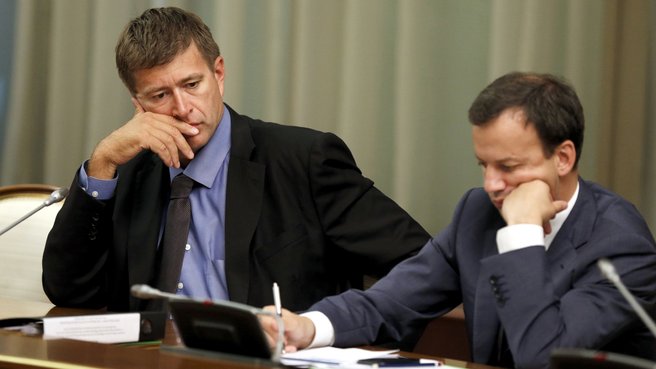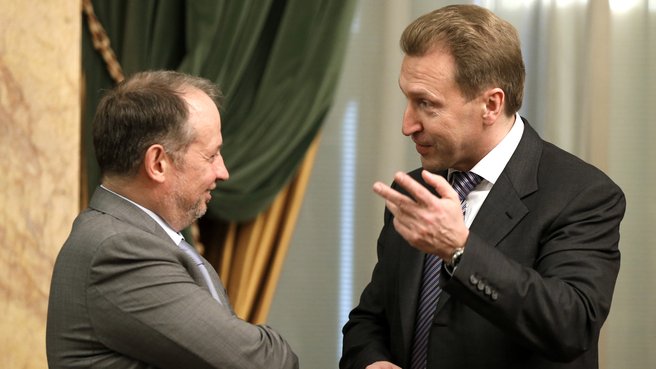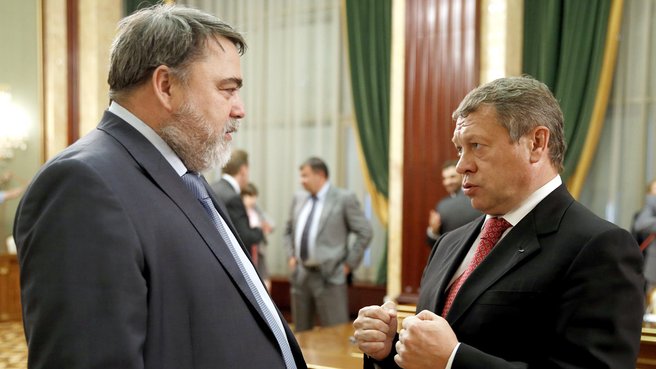"An ongoing dialogue between the Government and the business community is necessary and is part of good governance."
Dmitry Medvedev’s opening remarks:
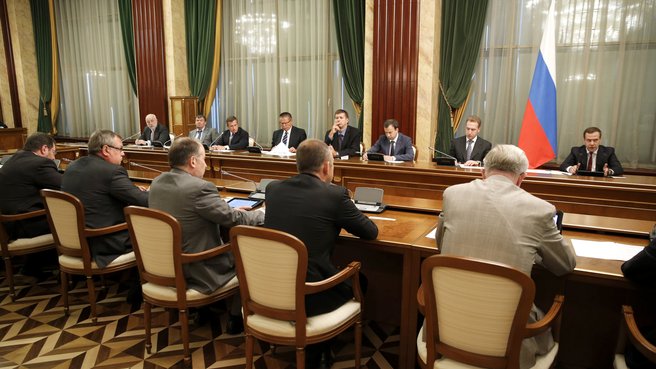
Meeting with members of the Bureau of the Board of Directors of the Russian Union of Industrialists and Entrepreneurs
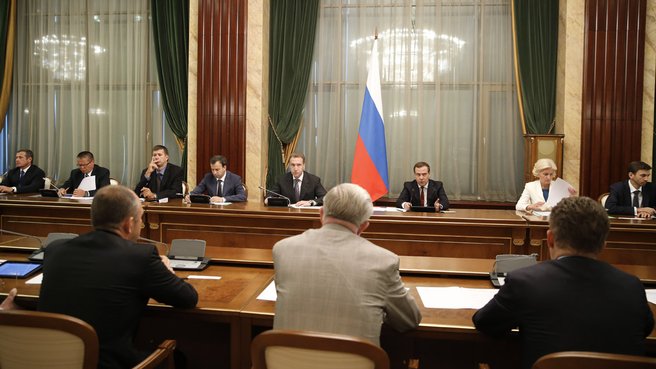
Meeting with members of the Bureau of the Board of Directors of the Russian Union of Industrialists and Entrepreneurs
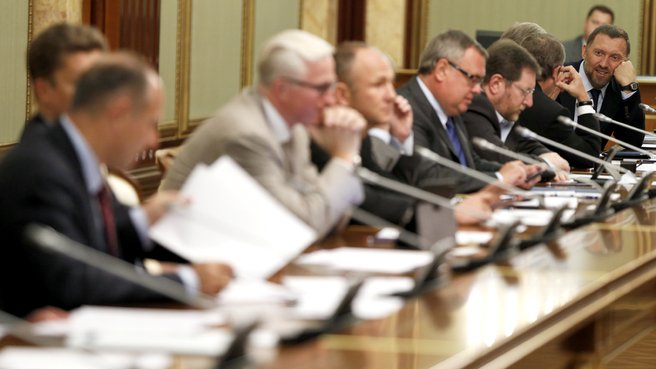
Meeting with members of the Bureau of the Board of Directors of the Russian Union of Industrialists and Entrepreneurs
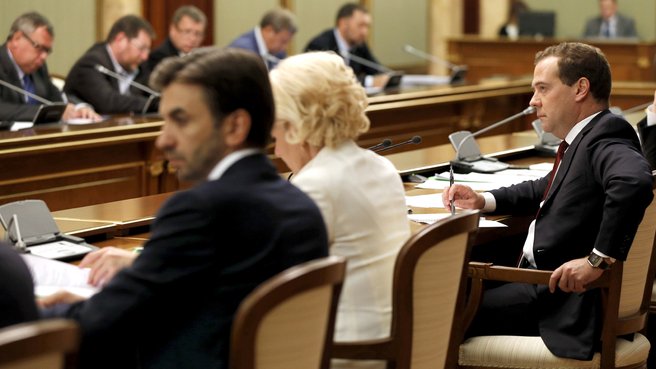
Meeting with members of the Bureau of the Board of Directors of the Russian Union of Industrialists and Entrepreneurs
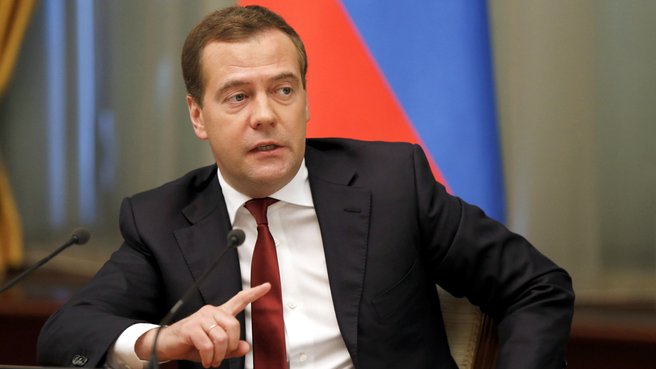
Meeting with members of the Bureau of the Board of Directors of the Russian Union of Industrialists and Entrepreneurs
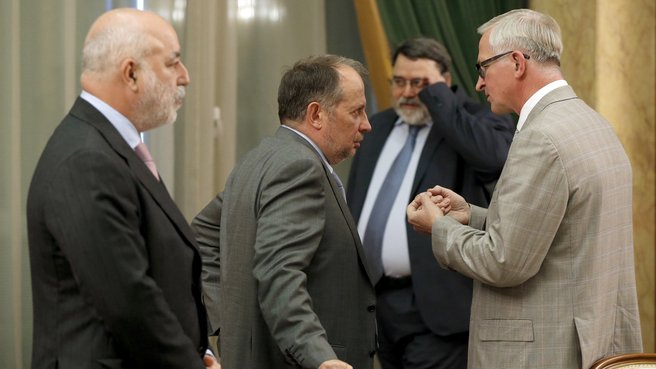
President of the Skolkovo Foundation Viktor Vekselberg, Сhairman of the Board of Novolipetsk Steel (NLMK) Vladimir Lisin, Head of the Federal Antimonopoly Service Igor Artemyev and President of the Russian Union of Industrialists and Entrepreneurs Alexander Shokhin
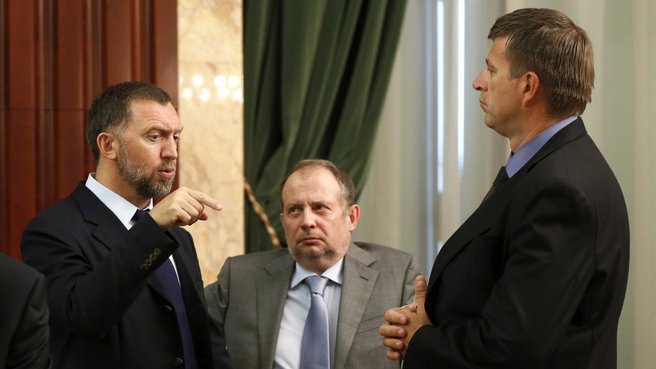
Basic Element CEO Oleg Deripaska, Chairman of the Board of Novolipetsk Steel (NLMK) Vladimir Lisin and Minister of Justice Alexander Konovalov
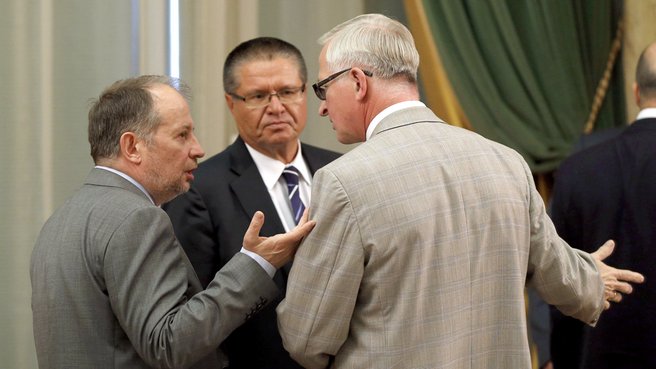
Chairman of the Board of Novolipetsk Steel (NLMK) Vladimir Lisin, Minister of Economic Development Alexei Ulyukayev and President of the Russian Union of Industrialists and Entrepreneurs Alexander Shokhin
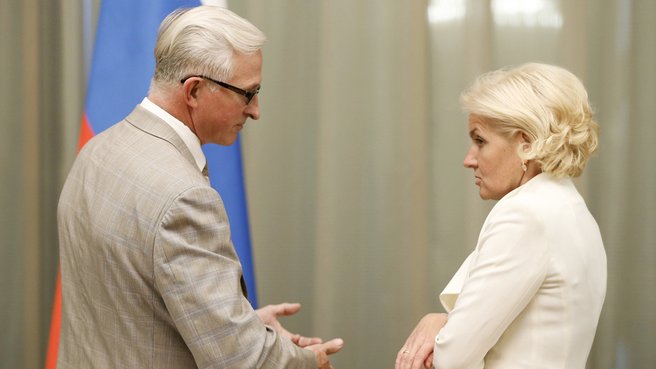
President of the Russian Union of Industrialists and Entrepreneurs Alexander Shokhin and Deputy Prime Minister Olga Golodets
Meeting with members of the Bureau of the Board of Directors of the Russian Union of Industrialists and Entrepreneurs
Good afternoon. First of all, I’m glad to see you here. I believe that an ongoing dialogue between the Government and the business community is necessary and is part of good governance, especially in view of the current difficult economic situation in our country. A new model of economic growth is taking shape right before our eyes. A new technical environment is being formed, and the competition is intensifying. Under these circumstances, it’s important that the government and the business do not waste time, that they work together and, of course, look for appropriate answers to the challenges faced by the Russian and global economies.
I would like you to tell me about how you like working in this new environment, with Russia now being a member of the WTO and the Common Economic Space, and, of course, I’d like to hear your expert opinions with regard to our efforts to improve the investment climate, improve legislation and law enforcement, and our progress on road maps, which are important for businesses; that is, on all the issues that you believe to be important.
Just a few words about the most important issues, such as taxation. The Government has approved taxation policy priorities for 2014-2016.
I would like to emphasise, even though I’m sure you are aware of this as people who keep track of such things, that during the next three years no major changes will be made to the taxation system, and no new taxes will be introduced. Emphasis should be made on improving tax administration and reducing the size of the so-called shadow economy.
I believe that our common goal is to make taxation regulations clear and enforceable for everyone, and that everyone, including large-, small-, and medium-sized businesses, both Russian and foreign ones, pays taxes.
Dmitry Medvedev: "During the next three years no major changes will be made to the taxation system, and no new taxes will be introduced."
My second point is about the implementation of large infrastructure projects, which we are now heavily involved in despite budget constraints. I’m referring to the construction of a high-speed railway connecting Moscow and Kazan, the Central Ring Road Motorway, all transport problems in Moscow, and upgrading the Trans-Siberian Railway. We have allocated significant amount of funds – about 450 billion roubles – for these purposes, but this is not enough. Clearly, we will have to attract private capital, including as part of the concession agreements, and use deferred payments, when the expenses of private investors are offset by additional tax revenue generated from subsequent implementation of the project.
There’s another important issue. A new regulatory impact assessment procedure was introduced on July 1. When you and I discussed it, you said that this document and the regulatory impact assessment itself are useful. The analysis seeking to identify redundant and inefficient rules will be now mandatory for taxation and customs regulations, the quality of which has always been questioned. This analysis will be performed by lawmakers at early stages.
I think I’ve said enough to start a conversation. My colleagues – deputy prime ministers and ministers – are here, so they’ll provide their comments, as necessary. I know that our colleagues have prepared their remarks, so let's hear them out.
<…>
